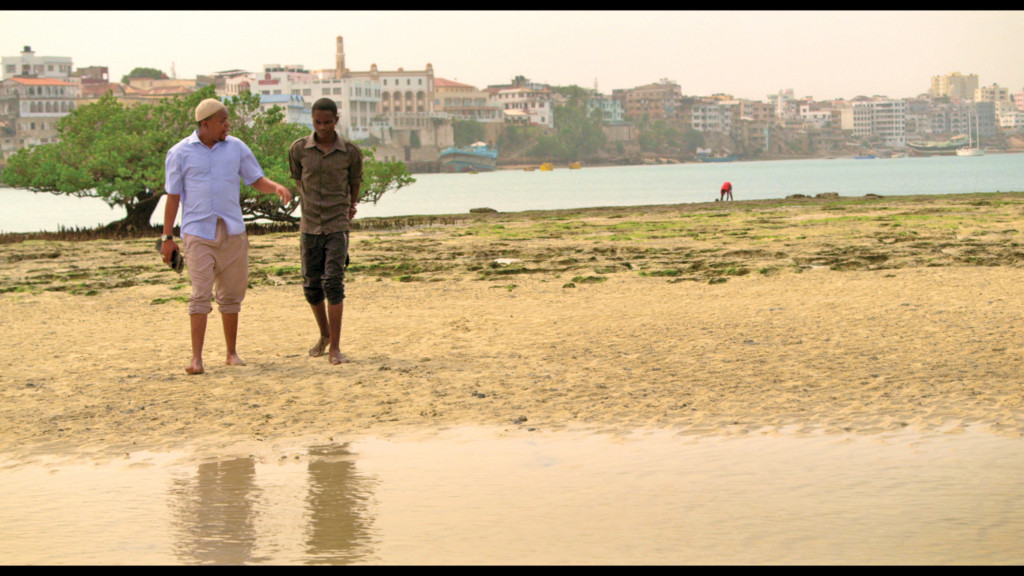An arts charity based in Kenya has produced its third film, about the lives and relationships of people from different walks of life in Mombasa. Its goal is to shed light on what prompts young people to turn toward extremism.
Watatu is a production of Sponsored Arts for Education (SAFE) Kenya, which also produced the acclaimed movies Ndoto Za Elibidi, about the AIDS epidemic, and Ni Sisi, about ethnic violence. The latest movie was filmed entirely in Mombasa, Kenya’s second largest city.
The film’s name is Swahili for “three” and focuses on the lives of three men. One is a married Muslim. His young nephew, the second man, has a degree but cannot find a job and is becoming an extremist out of anger, disillusionment and boredom. The third man is a friend who had left Mombasa but has returned to be a community police officer. The nephew perceives him to be an outsider and loathes him for it.
The primary theme of the movie is the radicalization of Kenya’s unemployed young adults. One unusual aspect of the film is how it ends: The last segment features scenes from an original stage performance of the script and audiences’ reactions to it.
The production company had its beginnings in the 1970s with the University of Nairobi’s Free Traveling Theatre. SAFE, now in its 14th year, uses the performing arts to tackle Kenyan society’s problems and the need for change. Watatu premiered in Mombasa in June 2015.

